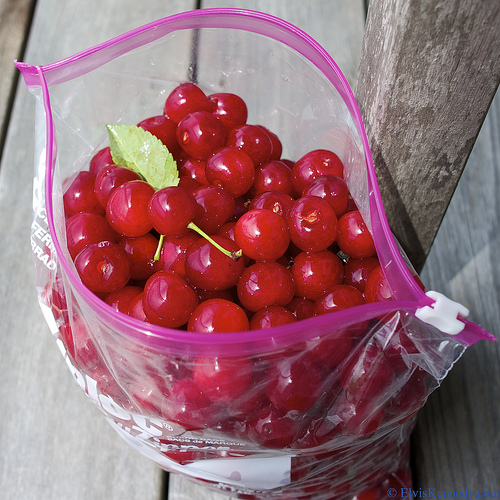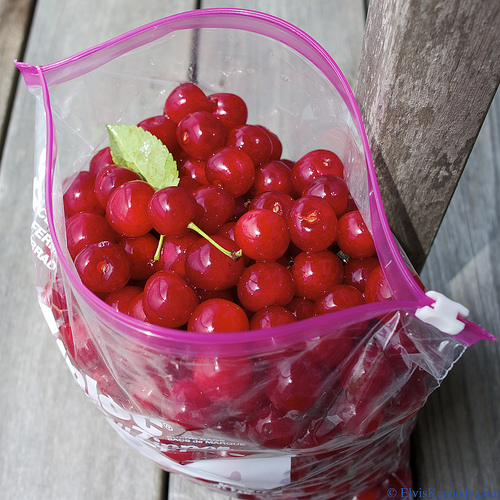 Cherry-pick your food containers and leave plastic baggage behind.Photo: Elvis KennedyDearest readers,
Cherry-pick your food containers and leave plastic baggage behind.Photo: Elvis KennedyDearest readers,
Once in a while, your separate letters decide to link arms and chant in unison to ensure that they’re really heard. Today they are telling me that many of you are losing sleep over plastics and food. But may I gently suggest that your insomnia is misplaced.
Instead of gazing into the darkness and wondering whether you should wash out your zip-lock baggies, you should be chewing your pillow in fury over the fact that a household good could be so bad. The plastics industry, built on the concept of “better living,” could in fact be poisoning us all.
The chemicals in some plastics can leach into foods and beverages, and have been linked to respiratory issues, reproductive issues, and cancer. Check out the article “Even BPA-Free Plastic Not Always Safe,” which discusses the “estrogenic activity” of various plastics heated in a lab. To quote a dear friend, “big yuck.”
As I suggested in my recent plastics from plants column, our primary goal should be to reduce the amount of plastic in our lives. So I hereby challenge each of you, this week, to start cutting the plastic out of your kitchen. Just summarily recycle one item — and then tell us about it in the comments section.
If you can’t part with your plastic, at least follow these helpful guidelines to make sure you’re using the safe(r) types.
Now let’s see if I can ease the minds of a few anxious readers:
To Colleen in Boston, whose coworker is haranguing her for washing zip-lock bags: Yes, she’s right that you are probably using more water than was used to make the bags in the first place. Yes, you’re right that you are saving on raw materials, shipping impacts, and landfill space. So feel free to keep rinsing if you wish, and consider it a wash. But I do recommend that you and all your fellow zip-lock reusers — and there are scads and scads of you, I know — take your admirable energy and put it into finding alternatives to plastic instead. You might start your search at Reuseit.com or Life Without Plastic.
To Kate in Chapel Hill, N.C., who uses shower caps to cover food in the fridge: I wish I could call your solution harebrained, just for pun, but it’s actually quite creative. However, your husband is right that washing these caps creates its own impact. On the question of whether they are dangerous because they’re not food-grade plastic, I say food-grade plastics are dangerous enough in their own right. So go ahead and find another purpose for the caps — and use stainless steel or glass storage containers in your fridge instead.
To Sara in Fond du Lac, Wis., whose work inside a prison means she cannot bring metal or glass containers but who wants an alternative to microwaving her #5 plastic: For you I have boundless admiration, if not boundless suggestions. Depending on the sloppiness of your lunches, I would suggest you look into ceramics, bamboo, or silicone. As far as heating food in plastic goes, there’s heated debate, and as is often the case in these situations, your choice will come down to whether you trust the feds, in this case the FDA. I suppose you could simply eat your meals cold — but I imagine that’s not too appealing in Fond du Lac, especially this time of year.
That’s it for now, dearest readers. Promise me you won’t fret too much, whatever you decide. We all need to get a little rest.
Polymerrily,
Umbra




